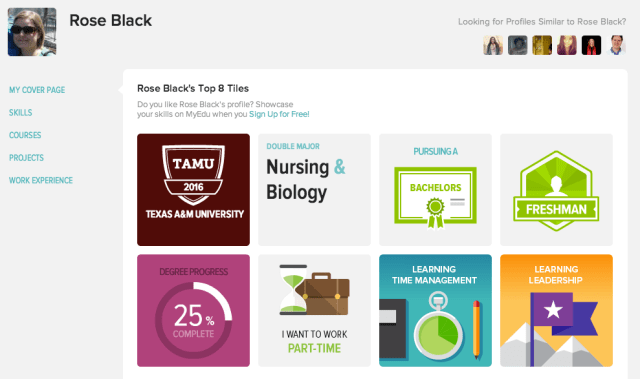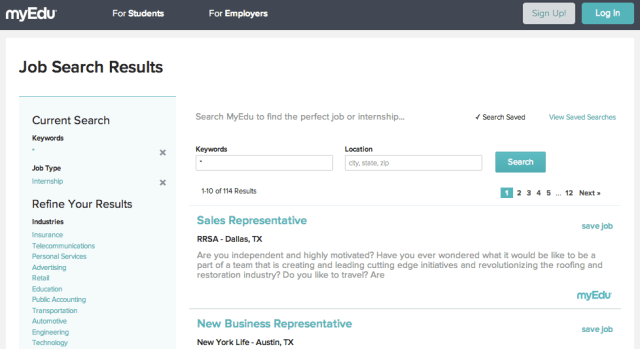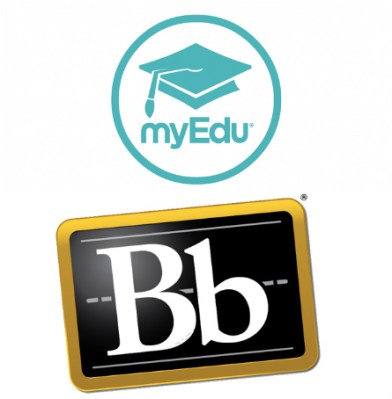Over the years, Blackboard has become one of the most familiar brands in the world of education. Today, Blackboard’s learning management system (LMS) and educational tools are used in 75 percent of colleges and universities and more than half of K-12 districts in the U.S. With more than 20 million users across 20,000 organizations, the 16-year-old company remains the dominant player in the market, serving both professional and academic sectors.
However, in spite of its long-standing dominance, Blackboard hasn’t always inspired songs of praise. Designed to be a utility in the ilk of productivity software, the learning management system focused on efficiency and solving workflow and organizational headaches for administrators and teachers. But for college students, Blackboard’s user experience and unwieldy interface became infamous as a part of academic life that was to be endured, not enjoyed.
After years of ups and downs, the departure of its founders, declining brand image and the move from private company to public company back to private, the company is showing signs that its ready for a revamp, particularly of its core product: The LMS. That begins with the news this week that it has acquired MyEdu, a three-year-old startup and maker of a platform that aims to help students reduce the cost of a college education, plan their degree and find a job.
The terms of the deal were not disclosed, though we do know that, as MyEdu and its team of 20 employees join Blackboard’s ranks, the startup will continue to work out of its headquarters in Austin. In terms of the acquisition’s effect on the end user? According to MyEdu Chief Product Officer Frank Lyman, aside from the gradual expansion of its career platform, the effects on current users will be minimal, and the platform will remain free for anyone to sign up.
Since its founding in 2009, MyEdu has developed its platform to provide value to students in three key areas, all of which revolve around the core goal of helping young people to manage their academic careers in a way that improves their chances of getting a job.
From the beginning, MyEdu has methodically hoovered up student and university data in an effort to identify patterns that lead to higher costs. Not only does it offer grading information and aggregate professor reviews, but it has worked to collect detailed public course data in an effort to make it easier for students to know which professor teaches which classes and which classroom those courses are offered in.

On top of that, MyEdu offers tools that allow students to create online portfolios, not unlike a student-centric LinkedIn, where they can showcase their skills, displaying coursework and professor recommendations and so on. Backing its degree planning resources are its career tools, MyEdu’s third key area of focus, which aim to help students find internships and make it easier for employers to connect with students and recruit top talent.
Today, with the help of nearly $20 million in outside funding, MyEdu’s platform now offers data from over 800 institutions across the country and over one million students have used MyEdu to help manage their college experience and connect with employers — with 660,000 of those students having created accounts in the last 14 months. In turn, Lyman says that more than 200,000 students have made their profiles public on the platform, which he sees as validation of the demand among students for a college-centric digital portfolio and resume platform.
It is here that Blackboard stands to benefit most from its acquisition of MyEdu’s degree management and career planning platform. Education platforms and learning management technology in particular are being rapidly transformed by the consumerization of user experiences and are increasingly beginning to view the student as the consumer when it comes to product development.
Through its acquisition of MyEdu, Blackboard now has access to a network of student profiles, where users are encouraged to write “endorsements” a la LinkedIn rather than simply rating each other, along with career planning features, which together help the company strengthen the bridge between school and life outside. Traditionally, Blackboard has struggled with the discrepancy between the two and with effectively integrating new technologies across its own product portfolio.

MyEdu will be the first big test for Blackboard. The company desperately needs to improve its user experience and increase continuity between its products and between its interface and experience. To that end, as Blackboard looks to renew its focus on product design going forward, it seems that one of MyEdu’s key selling points was its user-friendly design and UX.
In an interview with Inside Higher Ed, the Blackboard CEO said that “in the context of design, MyEdu is one of the better ones I’ve seen. You can’t quantify cool, but it’s a very cool product.”
With an increasingly digitally savvy student population that has grown up with Facebook and social networking, the LMS is changing — both in the “consumerization” of its product and as a utility that focuses not only on better sharing, but better connecting the college campus with life outside. Blackboard may have the users and the bulk of marketshare, but what it does not have is a “cool” product. With any luck, the acquisition of MyEdu augurs baby steps in that direction. After all, if you can’t manufacture cool from within, and you have the money, why not buy some?
For more, find Blackboard’s announcement here.
